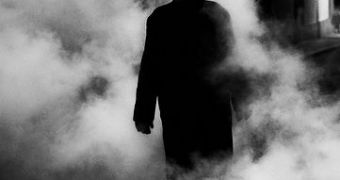Secondhand smoke exposure increases the risks of some degree of hearing loss, according to a new study carried out by American researchers.
Scientists knew that former and current smokers have more risks of losing some of their full range of hearing, from previous studies, but until now, it was unclear if passive smokers had the same risks.
For their research, the study authors used data from the National Health and Nutrition Examination Survey (NHANES), for the 1999-2004 period.
NHANES is a household survey mixed with a physical examination of a representative sample of the American population, conducted every year.
In the final analysis were included 3307 adults, aged between 20 and 69, who were considered passive smokers according to the levels of cotinine – a compound of tobacco smoke, in their blood, and who underwent hearing tests.
The subjects also gave information on their medical history, their level of exposure to noise and whether they had smoked or lived/worked with a smoker.
In order to test the degree of hearing loss in every subject, the researchers tested their ability to hear pure tones in a frequency range going from 500 Hz (low) to 8000 Hz (high).
The individuals most likely to suffer from high frequency hearing loss were older men and men with diabetes, whether they had smoke or not.
After considering the smoking criterion, the researchers concluded that former smoking as well as passive smoking, were both connected to impaired hearing, with former smokers significantly more affected.
In the former smoking group, the preponderance of low to mid frequency hearing loss was 14%, with over 46% having high frequency hearing loss – over 25 decibels.
The authors say that in the former smokers' group, passive smoking continued the progression of high frequency hearing loss that started when they were active smokers.
The authors say that “further research is required to determine whether [passive smoking] potentiates the effect of noise exposure and aging on hearing.
“If this finding is independently confirmed, then hearing loss can be added to the growing list of health consequences associated with exposure to secondhand tobacco smoke.”
This study was the result of a collaboration between researchers at Starkey Laboratories, Eden Prairie, Minnesota, the University of Miami, Department of Epidemiology and Public Health, Miller School of Medicine, Miami, Florida, and Florida International University, Department of Environmental and Occupational Health, Robert Stempel School of Public Health.
The research is published online in Tobacco Control.

 14 DAY TRIAL //
14 DAY TRIAL //